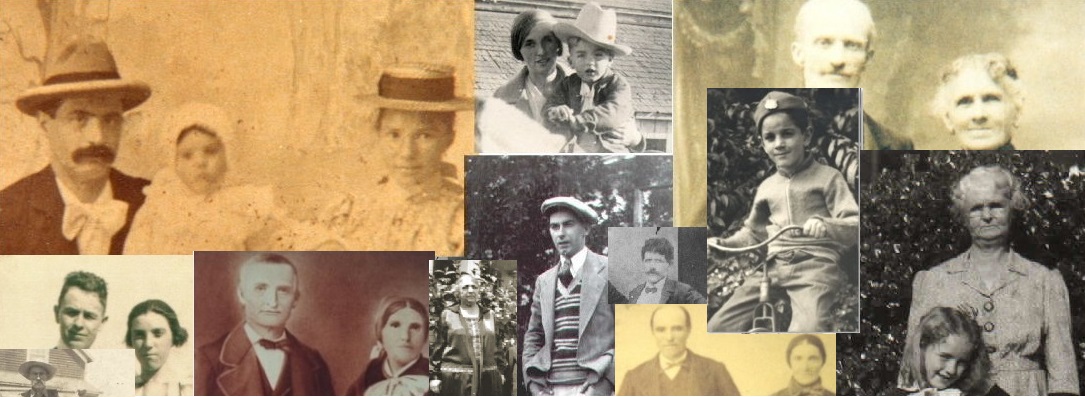Would you like to understand more about your Azorean heritage? Do you have an interest in all things Portuguese? Or, are you a fan of folklore and fables? Then, you might be interested in a volume by Elsie Spicer Eells titled “The Islands of Magic: Legends, Folk, and Fairy Tales from the Azores”. This is my review.
A Collection of Very Short Stories
There are 34 stories in this collection. Many of them are less than 5 pages. It’s the type of book you can dabble with, put aside, and then read some more later.
The book is illustrated throughout with drawings depicting various parts of each tale. The illustrations were drawn by E.L. Brock.

Lots of Royalty and Magic
Kings and their courts are found in many of these tales as you would expect from any culture that has royalty in it’s history. As with many fairy tales there’s plenty of magic. It might come from objects, people, or other worldly beings. In that way, the tales aren’t so different from some we are more familiar with such as Cinderella or Rumpelstiltskin.
Magic may be used as a weapon or as a reward. In The Table, the Sifter, and the Pinchers, a struggling laborer aids the king. He is rewarded with a magical table that when given the command “Table, Set Yourself” it produces enough food for his family. Unfortunately, when word of the table gets out, the man finds himself in a worse situation than he started with.
Strong Women
Women are central to many of the stories. I was surprised to find so many strong heroines equal to the task of championing their own causes.
Women are not put in the back seat in these stories! Linda Bianca and Her Mask was a poignant tale of a beautiful women who was tired of being judged by only her looks. She has a mask especially made so she can blend in with others. She leaves her live behind to work as a servant for the ruling family and gets into a little mischief along the way. She had a bit too much fun with that mask!
Religion Makes an Appearance
Azoreans are deeply religious, belonging primarily to the Catholic faith. Some stories impart their religious traditions. Religious figures play a role in helping characters learn faith and trust.
In St. Anthony’s Godchild, a man with too many children is desperate to find a godfather for his last child, a daughter. He declares that the next man who walks down the road will be the one.
It turns out to be none other than St. Anthony. He’s glad to be the girls godfather and promises to aid her later in life. At 13, he takes her away and makes her work as a male page for the King. Her faith and abilities are tested as the King’s sister tries to destroy her.
More Traditional Folklore
The collection includes the usual creation stories, historical legends, moral tales, romance, and magical creatures. I guess I don’t know much about Azorean traditions. I expected angels to make an appearance but not dwarves!
The Azores Islands have a rich history of discovery and settlement. In the Silent Cavalier: The Story of the Peach Tree, there is recognition of their early Flemish and Portuguese roots. A Flemish cavalier finds himself among the first settlers of the islands. He can’t help but fall in love with a beautiful Portuguese maiden.
Of course, he can’t have her! You’ll have to read the tale to find out why and how the heck the peach tree figures in it all.
Who was Elsie Spicer Eells?
According to FairyTalez.com, Eusebia Spicer was born in 1880 in New York. She married Gordon Burr Eells. She was well-traveled and collected the tales from the lands she visited.
According to the preface in Islands of Magic, she visited the Azores between December 1920 and January 1921, meeting with locals and listening to their stories. Though she had American children in mind when she compiled this collection, she tried to stay true to the original version.
She also compiled a collection of fairy tales and folklore from Brasil and Spain.
A Wonderful Collection for Azorean Family History Buffs and Those Who Love Folklore
This was an enjoyable look at Azorean culture and heritage through its fables and legends. It made me realize I know very little of the storytelling and stories traditions that shaped my ancestors.
This collection has engaging characters and surprisingly independent females.
Eells does a fantastic job of capturing the spirit of the Azores Islands without modernizing or imposing her own perspective upon them.
I would recommend this book for those looking to gain a better understanding of their Azorean heritage and the myths and legends that guided their ancestors. It’s a fun read for those who love folk tales, too.
Disclaimer: I received this book as a gift from a family member who has no ties to the publisher or author. I was not paid for this review, however, as an Amazon Affiliate, I may earn revenue from any purchases made through the links on this page.
You may also be interested in my review of the Hawaiian history book “The Lost Kingdom“.







